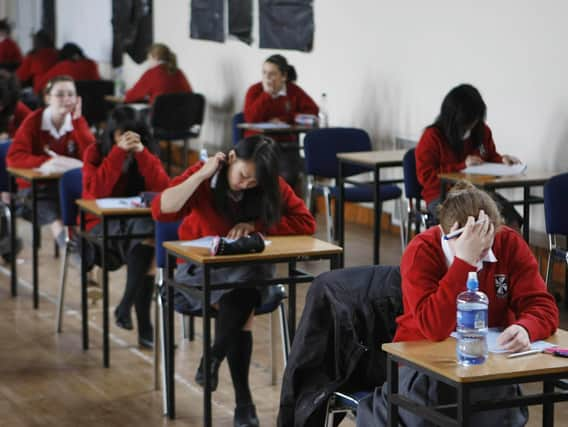Why we must all learn lessons to help students make the grade - Laura Collins, YEP Editor


Sealed within it were the exam results I had worked so incredibly hard over the years to achieve that were going to determine whether I was going to be able to come to Leeds to study at university.
I didn’t have a plan B - it was all or nothing in my bid to become a journalist.
Advertisement
Hide AdAdvertisement
Hide AdThe weight of expectation was hanging heavy on my shoulders as I opened it and, thankfully, the rest is history.
But this week I will be sparing a thought for the thousands of students who are set to receive their A-level and GCSE results against the backdrop of the pandemic.
They have faced months of school closures and cancelled exams as a damning report last week revealed that lessons had not been learned from the Government’s handling of education during the pandemic.
The Institute for Government found that it was a case of “pause, rewind, repeat” in the handling of the crisis which saw fresh closures and exam chaos.
Advertisement
Hide AdAdvertisement
Hide AdAnd who could forget the grading fiasco last year as the Government performed a swift U-turn and binned the “mutant algorithm” that had downgraded thousands of results?
Instead this year teachers have been required to consider a range of evidence, including mock exams, coursework, and in-class assessments using questions from exam boards, to make decisions on pupils’ grades.
Headteachers had to submit a personal declaration that they believed grades to be accurate.
Schools and colleges were also asked to provide samples of student work to exam boards, as well as evidence used to determine the grades for the students selected, as part of extensive checks.
Advertisement
Hide AdAdvertisement
Hide AdAll of this not only adds extra pressure on teachers during a highly challenging time, as they juggle the demands of their job, but also added stress for pupils as they await their results.
Put simply it has also been another year of confusion as young people try to plan ahead for their futures.
And once again our young people’s efforts risk being overshadowed by the chaos and controversy that clouds exam results because of the pandemic.
Over the weekend the Government’s former education catch-up tsar has said one of the “great legacies” of coronavirus could be growing inequality if ministers do not shake an “obsession” with exams.
Advertisement
Hide AdAdvertisement
Hide AdSir Kevan Collins, who quit in June after the amount ministers were prepared to invest in helping children catch up on their education post-pandemic fell so far short of what he believed was necessary, warns the focus has got to be on recovery and not the obsession every year with “just the exams”.
While the Government grapples with getting a grip on learning the lessons of the impact of Covid on education to avoid repeating them again we should applaud our young people for their resilience.
There are some lessons that you simply cannot learn from books and in the classroom.
And the last year-and-a-half has tested every single one of us in a way we never thought imaginable.
Advertisement
Hide AdAdvertisement
Hide AdSupport the YEP and become a subscriber today. Enjoy unlimited access to local news and the latest on Leeds United. With a digital subscription, you see fewer ads, enjoy faster load times, and get access to exclusive newsletters and content. Click here to subscribe
Comment Guidelines
National World encourages reader discussion on our stories. User feedback, insights and back-and-forth exchanges add a rich layer of context to reporting. Please review our Community Guidelines before commenting.
